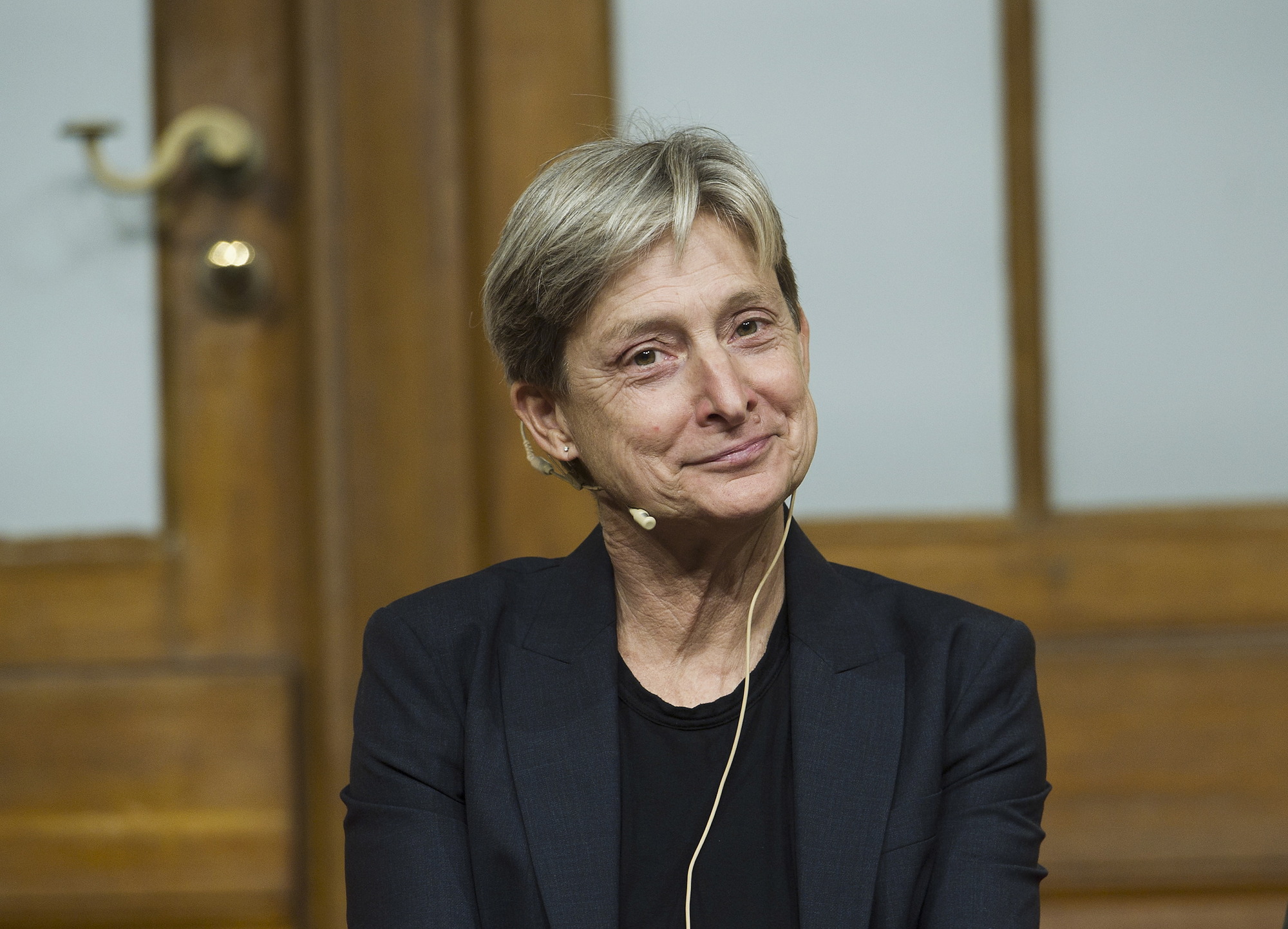Judith Butler is out promoting a new book, the first the notoriously enigmatic theorist has ever written with actual readers in mind. Who’s Afraid of Gender? explores what Butler characterises as a global movement animated by the “phantasm of gender”, which “collects and displaces anxieties and fears of destruction, resulting in a movement that demonizes struggles for equality, fuels aggressive nationalism, and leaves millions of people vulnerable to subjugation”. Or, to put it more succinctly, how everyone who disagrees with Butler — from Viktor Orbán to Julie Bindel — is probably just a fascist.
But there’s always risk involved in descending from the ivory tower and mixing with the (suspiciously anti-gender) plebs. In an interview this week with KQED Forum — a public-radio programme based in the San Francisco Bay Area — Butler ran headfirst into some of the hard facts she managed to evade on the page.
For the greater part of the interview, Butler goes on at length about how losing one’s sense of “superiority” or “inevitability” or “natural[ness]” in the face of bold new formulations of gender is a source of “grief” for some people — mostly fascists, who must learn how to live in a “broader and more capacious world” and “accept equality and the expansive nature of kinship and of gender”. She gives little consideration to the possible existence of legitimate grievances, such as female athletes who are being asked to accept inequality in their own sporting leagues and who must contend with the “expansive nature” of certain men’s entitlement.
The terrain shifts when the show opens up to questions from the audience. When “Kevin” calls in, for example, Butler loses her glib sure-footedness. Kevin raises concerns about girls with “underlying conditions, it could be maybe anxiety or autism,” who find themselves drawn to transgender identities but later detransition. He asks if there are “any dangers for people getting wrapped up in this and having it severely affect their life and mental health.”
“Ums” and “uhs” clutter Butler’s response. She wants to be “careful, uh, about making generalisations” — not previously a concern of Butler’s — “and I’m not sure, for instance, what an ‘underlying condition’ is, who’s determining that. My guess is we probably all have underlying conditions! I certainly would be surprised if I didn’t have one [Butler laughs nervously here] and who doesn’t live without anxiety?”
If Butler expected to find an adoring listenership in the ultra-liberal Bay Area, she misjudged how much public understanding and opinion has shifted over the past few years. It’s one thing to endorse vague nonsense about authenticity and self-exploration, quite another to sign on to the trans movement’s actual agenda. Public support for youth gender transition, and policies that put males in female spaces and sports, is cratering. Even in California, over half the residents surveyed said they were against trans participation in women’s sport, while a sizeable proportion (41%) were opposed to gender transitions under the age of 18.
As “gender-affirming care” comes under pressure in the United States, public relations specialists at the recent US Professional Association for Transgender Health conference in Denver instructed clinicians to avoid specifics in favour of unobjectionable generalities: don’t say mastectomies. Do say “medically-necessary care”. This is why trans activists are advised to avoid public scrutiny — the better to pass unpopular policies.
If there are phantasms in this debate, Kathleen Stock is right to suggest that these projections are Butler’s, not her critics’. When confronted with the real-world concerns she so skilfully evades on the page, Butler has nothing to offer. Her language clots with “amalgamations” and “paradigm shifts”, and never has her stubborn opacity looked more like what it is: a refusal to engage with the world as it is.











Join the discussion
Join like minded readers that support our journalism by becoming a paid subscriber
To join the discussion in the comments, become a paid subscriber.
Join like minded readers that support our journalism, read unlimited articles and enjoy other subscriber-only benefits.
Subscribe